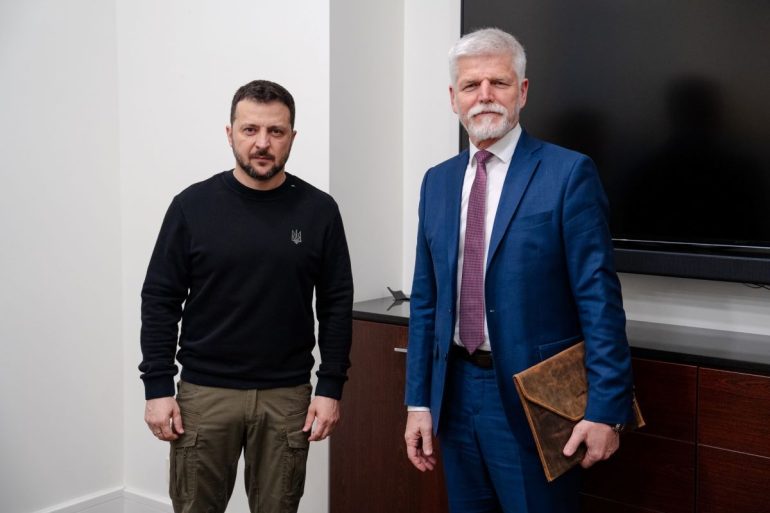The temporary Russian occupation of parts of Ukrainian territory may be the price for Ukraine’s survival as a sovereign state, President Petr Pavel said yesterday in an interview with the BBC.
Pavel said that although the territories in question will never be legally recognised as part of the Russian Federation, Ukraine is not currently in a position, even with Western support, to liberate the Russian-occupied areas in a short timeframe without major casualties.
Pavel continued that “we want [Ukraine] to survive as an independent sovereign country. If the price of its survival is that part of its territory is temporarily occupied, then so be it. We will never legally recognize these occupied territories as Russian.”
He said it would be unfair for the West to pressure Ukraine to immediately liberate all the occupied territories. The priority, he said, is the preservation of the Ukrainian nation.
The Czech President said he believes that it is necessary to continue providing military aid to Ukraine, but that the war cannot be won on the battlefield. He said economic pressure from Europe and the United States is a more powerful tool to bring Moscow to the negotiating table.
“It is in the interest of those on both sides of the Atlantic to put much more economic pressure on Russia,” Pavel said. He said this type of pressure was very effective, and that given the state of the Russian economy, they would not be able to remain under such pressure for long.
“Therefore, sooner or later, if these measures are applied, Russia will have no choice but to come to the table and negotiate, which it has so far refused to do,” he said.
Pavel argued that if Ukraine becomes a member of the European Union, joins the single European market and undergoes reconstruction after the war ends, the residents of the occupied territories will realize that they would be much better off in Ukraine than in Russia.
“These territories are merely a political tool for Russia, and their inhabitants are second-class citizens for Moscow,” he added.
Asked by the BBC whether he could guarantee that the Czech Republic would continue to provide military aid to Ukraine after the autumn parliamentary elections, Pavel said he could not.
“The Czech Republic will have parliamentary elections, which will probably lead to a change of government, and I don’t know what the priorities of the new government will be,” he said.
He added that Czech support for Ukraine is a crucial point in the Czech Republic’s defence and that he is talking to political party leaders about maintaining the principles of Czech security and foreign policy after the elections.






